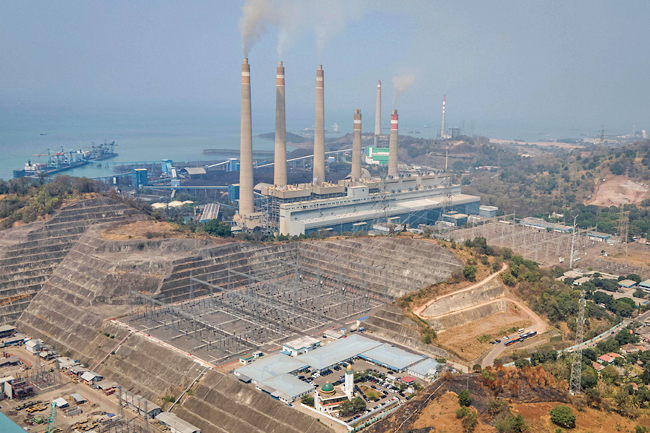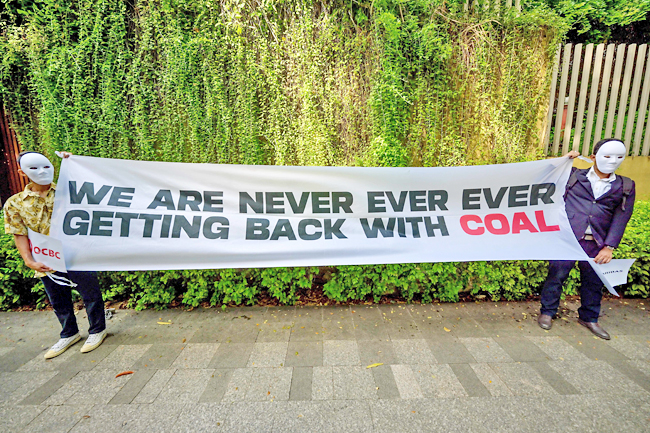JAKARTA (AFP) – Meeting Indonesia’s pledge to phase out coal power in just 15 years and reach net-zero emissions by mid-century is a “daunting task” that will require immediate and ambitious action, experts warned.
New President Prabowo Subianto offered a surprise commitment at last month’s G20 summit to close hundreds of coal and fossil-fuel power plants by 2040, a bold pledge from one of the world’s top coal producers and consumers.
“It will be difficult to achieve. We need a total change to do it,” said lecturer and energy economist at Gadjahmada University Fahmy Radhi.
Indonesia currently has 253 operational coal-fired power plants, according to the Ministry of Energy and Mineral Resources, including Southeast Asia’s biggest at the Suralaya complex on Java Island.
Dozens more are under construction, including so-called captive coal plants that supply energy to industry rather than the grid.
Shutting down this network to achieve Prabowo’s target of meeting net-zero emissions a decade earlier than previously planned could cost tens of billions of dollars, according to estimates by researchers.


And while Indonesia secured a USD20 billion Just Energy Transition Partnership with developed nations in 2022, which was supposed to speed its clean energy transition, little of that money has been seen so far.
Jakarta’s goal before Prabowo’s announcement was to close 13 coal-fired plants by 2030, indicating the ambition in his new timeline.
The government says it wants to build over 75 gigawatts of renewable energy capacity by 2040 but so far has laid out little detail on how it hopes to achieve its new aims.
Prabowo’s brother Hashim Djojohadikusumo, a businessman with interests in mining and renewable energy who is now special envoy for energy and the environment, said Jakarta wants to build two nuclear power plants.
But construction is far off, with Jakarta yet to even propose locations for them.
“The commitment is there, but I currently don’t see any implementation or realisation,” said Fahmy.
The archipelago’s coal addiction has proven hard to break before.
Prabowo’s predecessor Joko Widodo announced a moratorium on new coal power plant construction in 2022.
However, projects agreed before the ban continued and coal still accounts for two-thirds of power generation, according to the International Energy Agency.
That reflects the fact that coal is a cheap, reliable resource for rapidly expanding economies like Indonesia, where energy demand is steadily growing.
Indonesia’s coal plants are also mostly young, making retiring them early an expensive prospect.
The Institute for Essential Services Reform (IESR), a Jakarta-based energy think tank, estimated Indonesia would need USD27 billion by 2040 to shut down coal power plants that generate a total capacity of 45 gigawatts.
And state electricity company PLN, which says shutting a single plant could run close to USD2 billion, insists it will not shoulder the cost.
“Shutting down a coal power plant must be cost-neutral. If there are additional costs, they’re not the responsibility of the government or PLN,” its director Darmawan Prasodjo told Parliament last week.
Campaigners argue a gear shift is needed.
“There are still many policies that don’t aim for the real energy transition,” climate and energy campaigner at Greenpeace Indonesia Adila Isfandiary told AFP.






